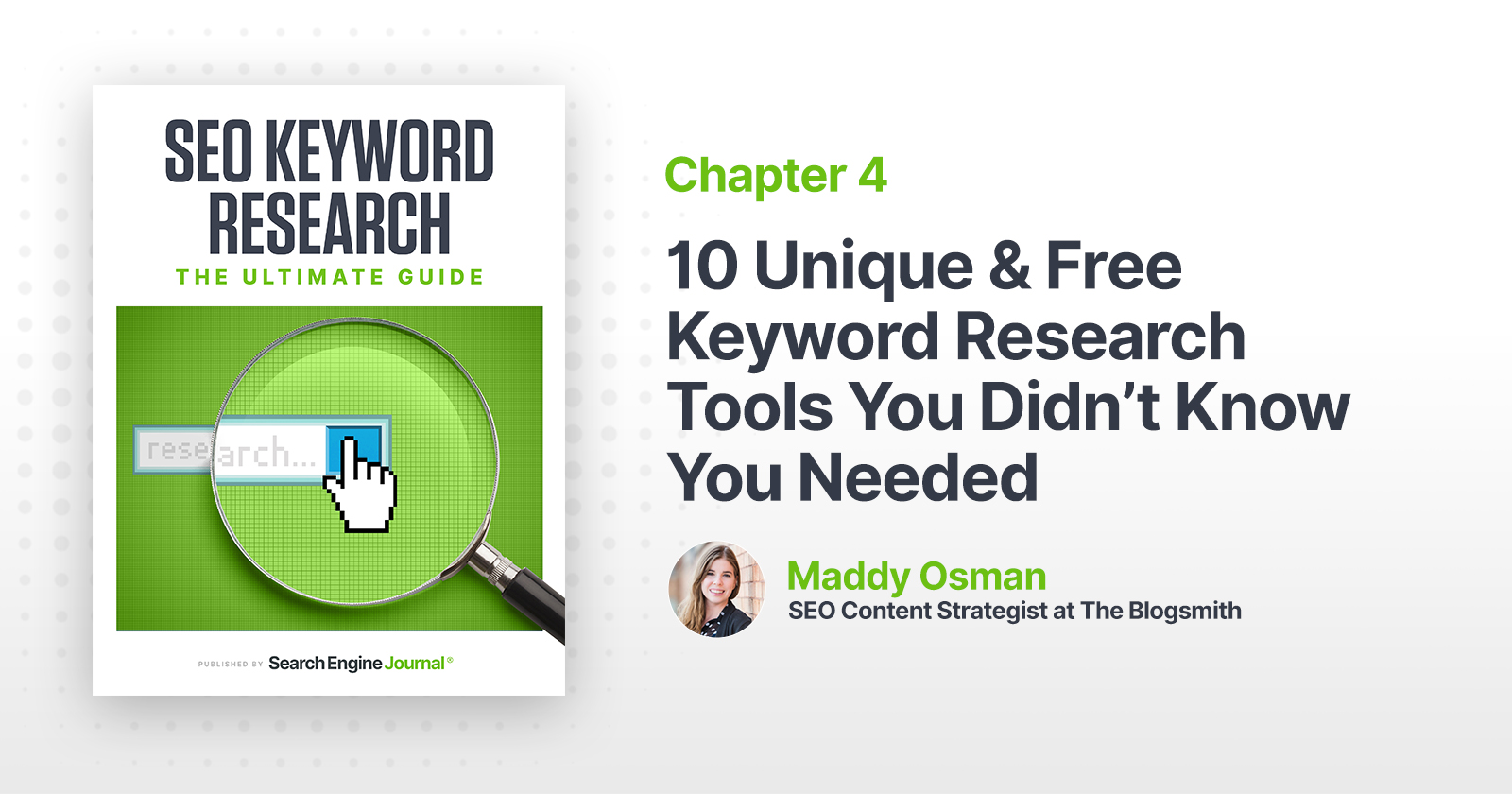
When it comes to SEO, keyword research is an important foundational step.
It’s easy enough to dismiss keyword research in favor of the more generalized “write great content” strategy.
The fallacy with this approach is that “great content” doesn’t differentiate between people at different stages of the buyer’s journey.
Keywords do.
You need to know what people search for and how they search.
For example, one of the initial stages in the buyer’s journey involves seeking information. People type queries into a search engine that may include phrases such as [how to], [ways to], and [guide].
The specific use of keywords changes the closer a person gets to buying (or converting).
For example, keywords that include [where to buy], [discount], and [sale] indicate a searcher who’s no longer in the consideration stage – they’re ready to buy now.
Because it comes from the world’s largest search engine, the Google Ads Keyword Planner tool tends to be the first one people think of for doing keyword research.
Advertisement
Continue Reading Below
However, Google limits the amount of useful keyword data it gives away. It isn’t specific enough to take strategic action.
Furthermore, this keyword data is in many ways irrelevant for ranking in relevant organic search – it refers specifically to paid ads data.
Luckily, there are several other great keyword research tools available on the market — some free, and some paid.
In this list, you’ll find some of the most unique and free keyword research tool alternatives out there.
1. TagCrowd
Analyzing your competitors’ content is an important part of doing proper keyword research.
Advertisement
Continue Reading Below
While there are tools like Semrush and Ahrefs that make this process easy, these popular options come with a hefty price tag for even the lowest cost plans at roughly $100/month.
Not everyone – especially those whose primary job doesn’t revolve around SEO – can justify this expense. If you’re not already using any of these tools and are looking for a free alternative, consider TagCrowd.
The premise behind TagCrowd is simple; it allows you to visualize word frequency by creating word/text/tag clouds.
Being able to see a competitor’s most frequent keywords for a given page can help you understand their keyword strategy – no expensive tools required.
TagCrowd is fairly straightforward to use. There are multiple ways to add and analyze content:
- Upload a file.
- Paste the webpage URL.
- Or paste the page text.
2. Keywords Everywhere
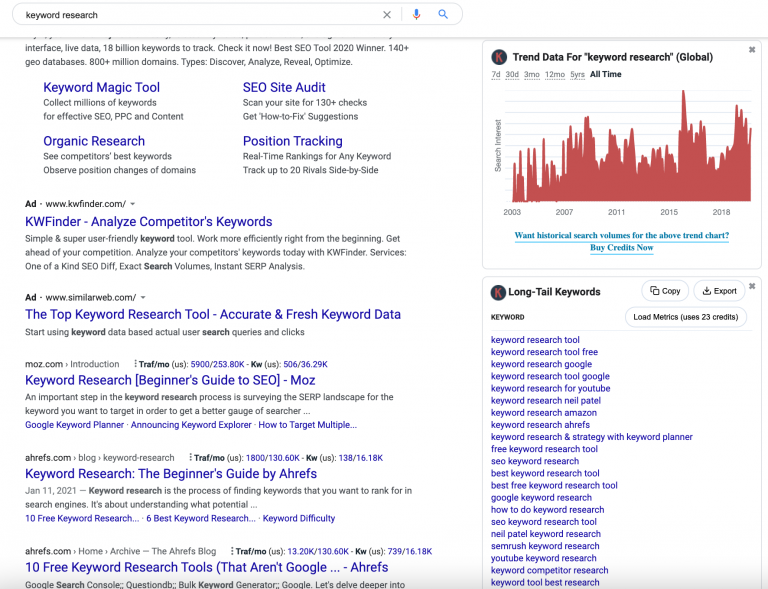 Keywords Everywhere is a free browser add-on for Chrome and Firefox that collates data from over 15 of the most popular keyword tools including Ubersuggest, Answer the Public, Google Search, Google Analytics, and Search Console (among others).
Keywords Everywhere is a free browser add-on for Chrome and Firefox that collates data from over 15 of the most popular keyword tools including Ubersuggest, Answer the Public, Google Search, Google Analytics, and Search Console (among others).
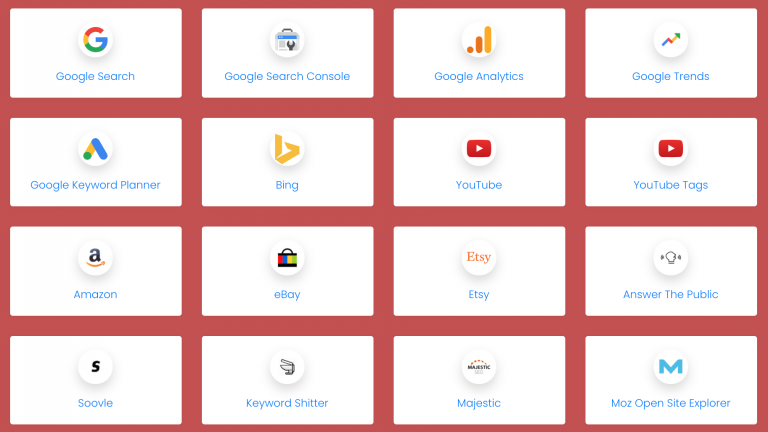
When you enter a search query into Google, Keywords Everywhere shows you some basic but useful information, including Google keyword search volume and cost per click data.
Keywords Everywhere collates data from multiple sources, making it easy for you to access the most relevant data and download to PDF, Excel, or CSV file formats.
3. Merchant Words
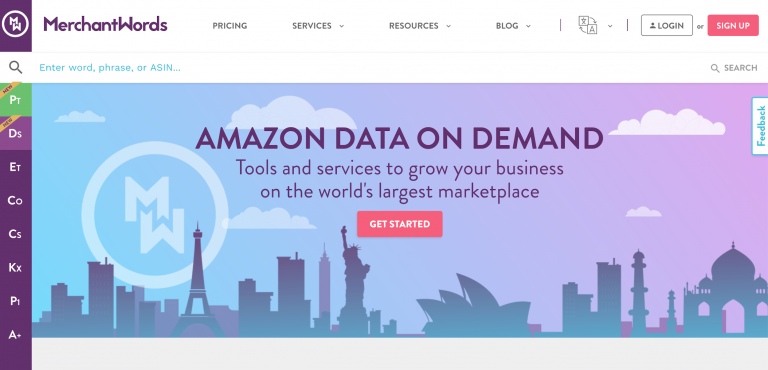
If you own an Amazon store, Merchant Words is the perfect keyword research tool for you.
Merchant Words collects data from over 1 billion actual Amazon searches around the world. All of their keyword data comes directly from shopper searches in the Amazon search bar.
Advertisement
Continue Reading Below
It calculates volume using a proprietary algorithm that takes into account site-wide Amazon traffic, search ranking, and current and historical search trends.
You can test out Merchant Words for free with a limited amount of keywords.
The paid version starts at $29/month (for U.S. data only) and is $149/month if you cater to a global audience.
The pricing includes unlimited searches and CSV downloads, as well as 24/7 customer service support.
4. PinterestKeywordTool
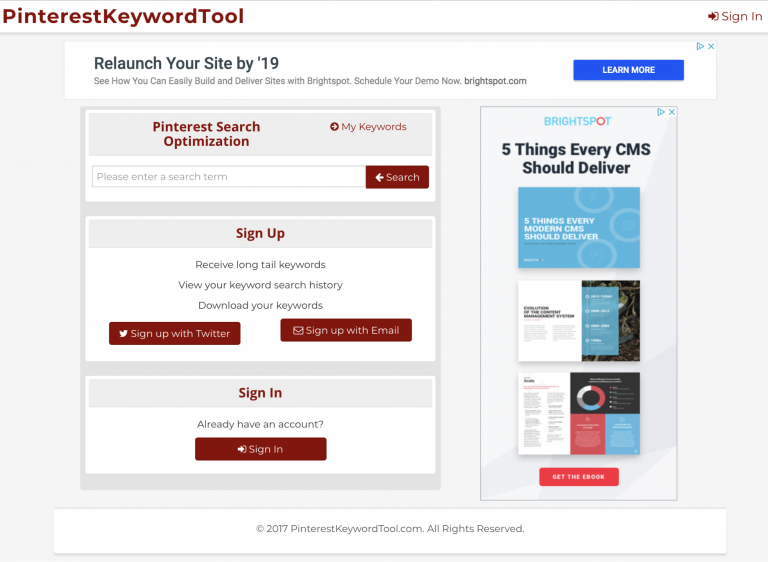
At first glance, this tool looks kind of spammy.
Advertisement
Continue Reading Below
And to be fair, PinterestKeywordTool doesn’t provide a lot of useful keyword data – especially in terms of search volume or ranking difficulty.
What it can tell you is if a keyword is popular on Pinterest and if there are any other long-tail keywords that you should consider.
5. Keyword.Guru
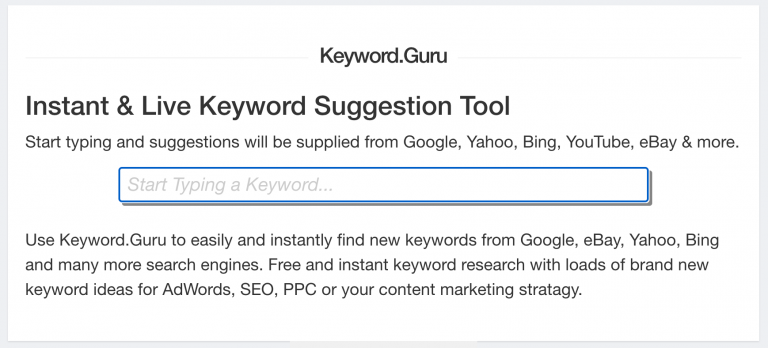 Keyword.Guru collates results from top search engines (Google, Yahoo, Bing) and ecommerce sites (Amazon, eBay).
Keyword.Guru collates results from top search engines (Google, Yahoo, Bing) and ecommerce sites (Amazon, eBay).
Once you start typing, it delivers results based on what people are searching for in real-time.
Advertisement
Continue Reading Below
Keyword.Guru does not display information regarding keyword search volume, but it does show you the most common searches for a seed keyword.
Using these real search results, you can infer which keyword phrases are most often used.
6. Keyword Shitter
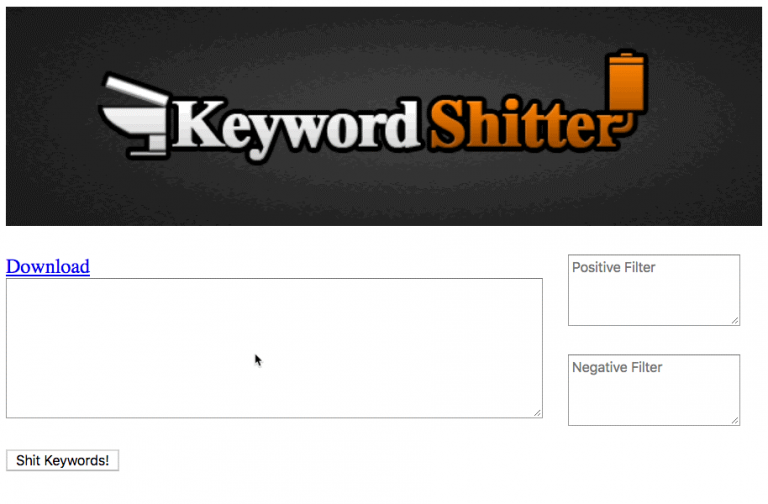
It does not take a genius to figure out what Keyword Shitter does: it spews out keywords like there’s no tomorrow.
The program works by mining Google Autocomplete for queries.
Advertisement
Continue Reading Below
If you don’t want that many keyword suggestions, you can narrow down the results by adding positive and/or negative filters.
7. Google Search Data
Is this suggestion unique? It depends on your level of awareness regarding the free keyword research tools available to you.
But many forget about the wealth of data available without leaving Google.
There are three Google search features that can help you flesh out topics and article structure.
Autocomplete

Google Autocomplete shares search suggestions that include various long-tail versions of your primary keyword based on actual user data.
Advertisement
Continue Reading Below
People also ask
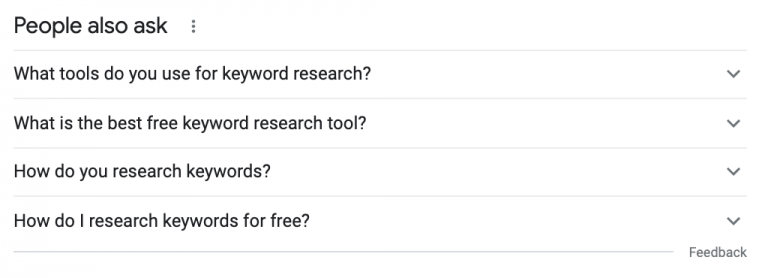
People also ask is similar to Autocomplete, but instead of focusing on the long-tail versions of your keyword, it shares questions that searchers ask that relate to your keyword.
These tend to be great for subheadings and featured snippet ideas.
Related searches
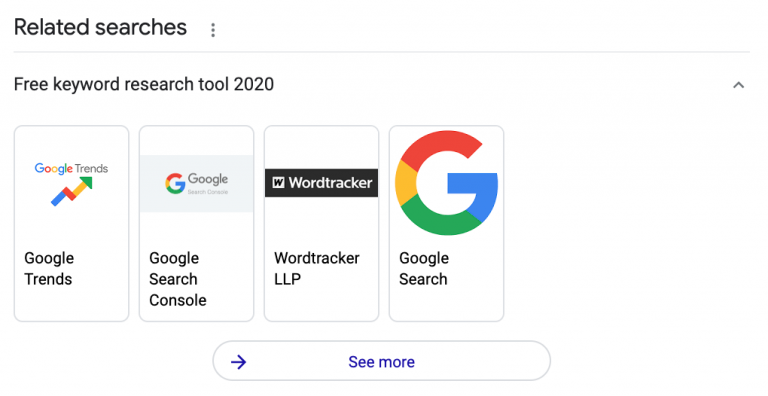
(Searches) Related to displays entities that don’t necessarily involve the same exact words as the primary keyword you typed in but are semantically related.
Advertisement
Continue Reading Below
They represent related topics that may make sense to bring up in your article based on what users are interested in learning.
8. AlsoAsked
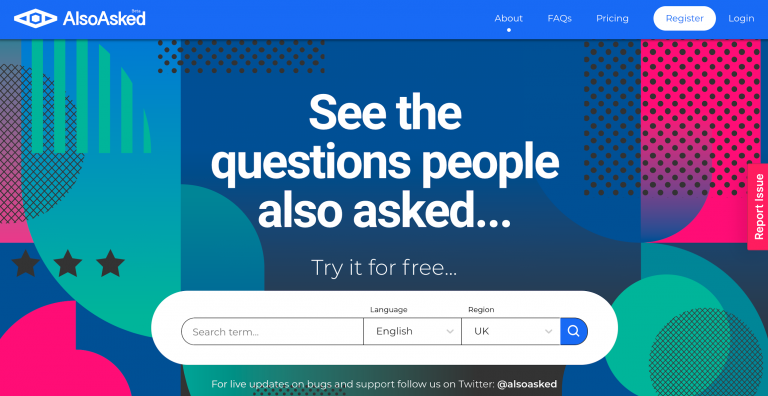 AlsoAsked is a freemium keyword research tool centered around People also ask Google data.
AlsoAsked is a freemium keyword research tool centered around People also ask Google data.
It suggests relationships between topics with helpful visuals. You can download data as .CSV or .PNG files.
AlsoAsked is different but similar to AnswerThePublic in that both provide additional context to Google data, with AnswerThePublic focusing specifically on Autocomplete data.
Advertisement
Continue Reading Below
9. StoryBase
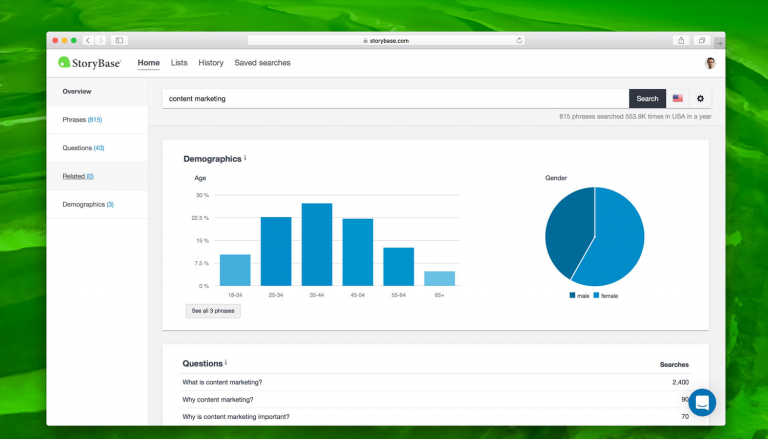 StoryBase is a premium keyword research tool that focuses on the finer details around search intent and searcher characteristics.
StoryBase is a premium keyword research tool that focuses on the finer details around search intent and searcher characteristics.
This is an excellent tool for brands that want to connect with their most ideal target audiences in search.
StoryBase maps various data points together to help you more quickly make sense of their relevance. A paid plan also grants access to various useful content analysis tools, including keyword performance and heatmaps.
Advertisement
Continue Reading Below
10. Keyworddit
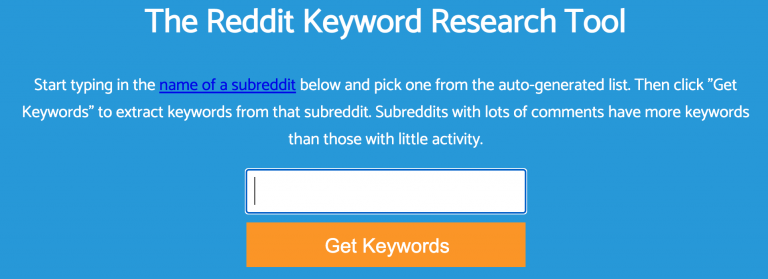 Keyworddit, the Reddit keyword research tool, offers another opportunity to optimize your keyword research in terms of connecting with your target audience.
Keyworddit, the Reddit keyword research tool, offers another opportunity to optimize your keyword research in terms of connecting with your target audience.
Diving into Reddit marketing isn’t as complicated as some build it up in their minds to be. But you can’t be effective until you’ve played around on the platform as a user.
Once you do, you’ll discover how Reddit can provide unique audience insights.
Advertisement
Continue Reading Below
Research subreddits (groups) that represent the characteristics of your target audience. Then, run the subreddit names through Keyworddit to extract keywords that represent what engaged users are talking about most frequently.
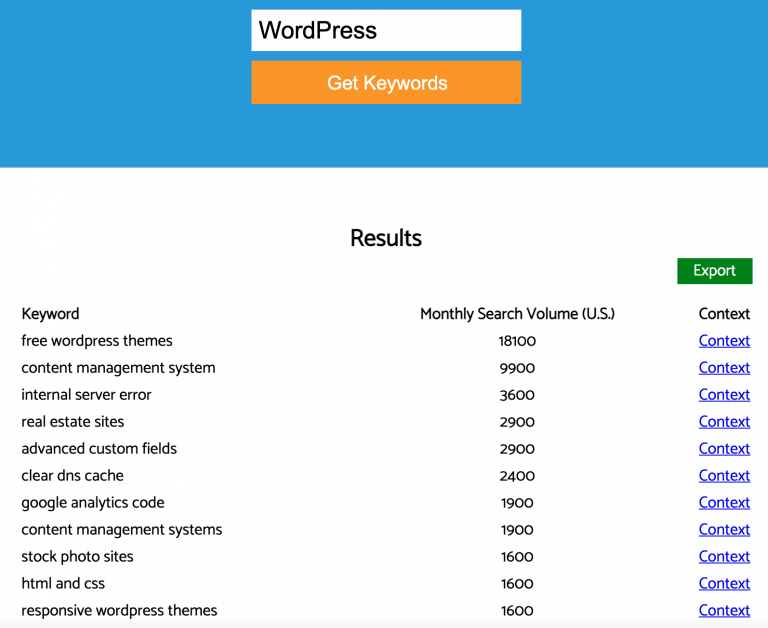
Keyworddit is a goldmine for ideas. Note that search volume is based on Google search data, not Reddit search data.
Conclusion
Keyword research is an important component of any good SEO strategy.
It no longer makes sense to rely solely on data gleaned from the Google Ads Keyword Planner tool (if it ever did in the first place).
Advertisement
Continue Reading Below
The good news? There are plenty of paid and free keyword research tools to choose from.
While popular paid keyword research tools provide the most data (with the easiest route to uncovering it), free keyword research tools can still be quite insightful – without the hefty price tag.
Featured image credit: Paulo Bobita

